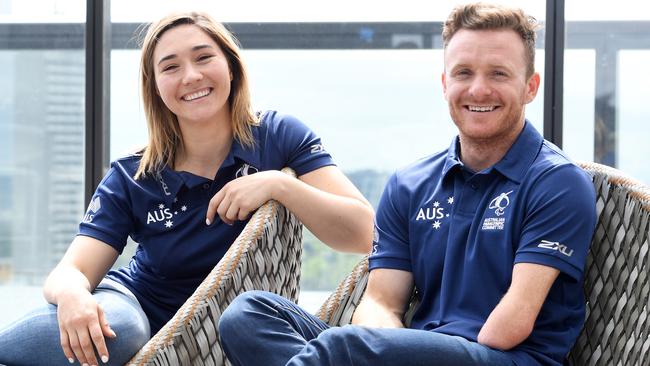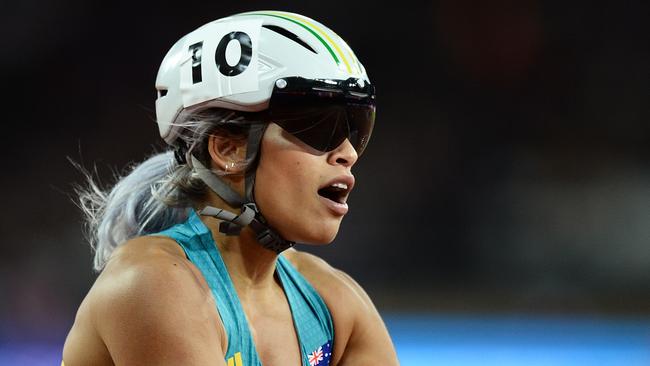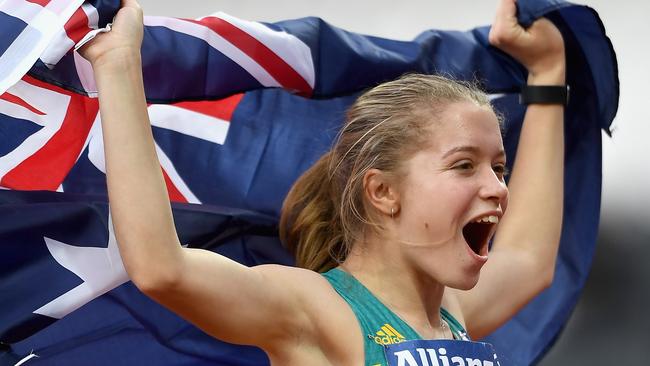Aussie Paralympian Raissa Martin opens up about her preparation, sacrifice and hopes for Rio
AUSSIE goalball team member Raissa Martin may have had only 10 days to get officially prepare for the Paralympics but she is determined to do Australia proud.
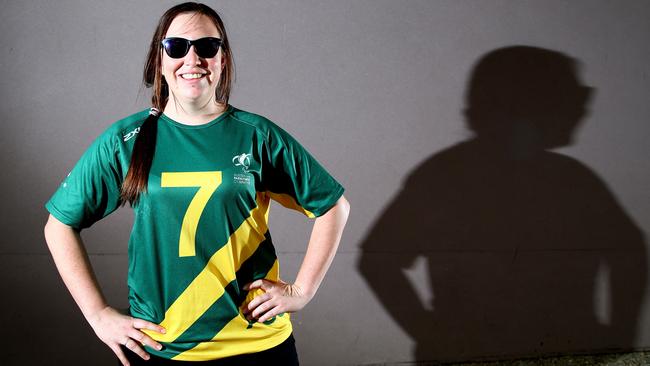
BRISBANE’S Raissa Martin, 25, jetted off to Rio over the weekend for her first Paralympics. One of three Queenslanders in the six-woman goalball team, she was stunned by the last-minute call-up brought about by a ban on Russian competitors.
You have a busy life playing elite sport and doing university studies. Then all of a sudden you find yourself dashing off to the Paralympics.
Yes, the last few days have been a huge rush. I’ve just been in Woolies buying a Tassie Devil mascot for our team. We’ve had a month’s notice, maximum, that we might get a spot with the Russians out but officially we only got the news a week and a half ago.
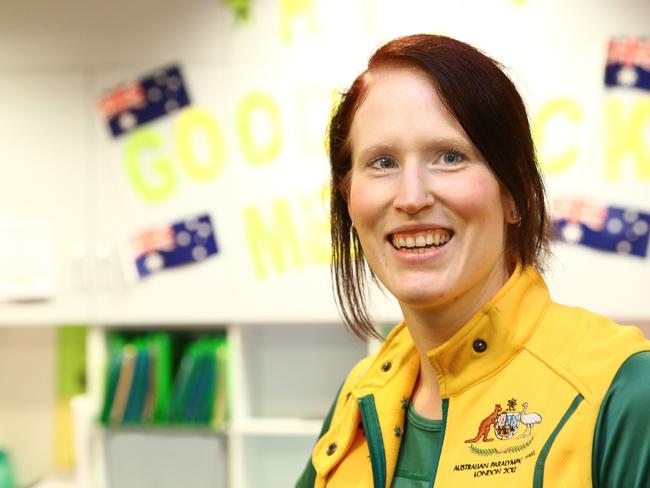
Your Queensland teammate Meica Horsburgh didn’t think any of you were going and had planned a year in Europe instead.
Being selected for Rio was a shock for all of us. Meica is still going to Europe but she’s leaving two days after we get back from Rio. Thankfully none of us booked holidays while the Games were on.
You must have mixed feelings about the Russians missing out for Rio.
I really feel for the athletes who have done the right thing and haven’t been part of the accused doping but ultimately we want a guarantee of a clean sport. We all get tested and we want everyone in Rio to be a clean participant. With Russia missing out we now get the chance to compete and all we can do is make the most of the opportunity, and make Australia proud in Rio. It’s been my dream to go to the Paralympics since I was 10 years old.
Goalball was invented to help rehabilitate World War II veterans. You wear blacked out ski goggles when you’re playing and you intercept the ball by throwing your body in front of it. That sounds dangerous.
It’s like reverse dodgeball. The ball has bells in it so we play by sound not sight. It’s an exciting game on so many levels. We have the goggles to completely block out all light and everybody is then equal.
What skills do you need?
The ability to run fast for a few steps. I’m primarily a defensive player so I need to be able to crouch and jump quickly. You need a lot of fast twitch muscle fibres, you need a good base fitness and a strong core. We spend a lot of time doing weights. You need a good pain threshold, too. It hurts when you get hit in the face. It really hurts.
You work for Link Vision?
Yes. I work one-on-one with vision impaired students teaching them computer skills and I’m also studying a graduate diploma in education. My goal is to be a high school teacher in accounting. I also have a Bachelor of Business degree.

You were born with a condition called rod monochromatism. What is that?
It’s the absence of “chromat” cells in the retina. I was born without the function of half of my retina. I’ve got photophobia, light sensitivity, too. I’m completely colour blind and short sighted. I can still see a bit; I’m in the highest vision category allowable in the Paralympics and I function quite well. I don’t drive but there aren’t a lot of things I don’t do.
You’ve packed a lot into a few years. How much training do you do for the biggest sporting moment of your life?
About 20 to 25 hours a week. I do three weight sessions a week, three cardio, two or three sessions playing goalball and I try to fit in a yoga session or go for a run.
That’s hard work.
Especially when I’m trying to balance it around study and work. Needless to say I haven’t slept a lot in the last three weeks.
How did you become involved in the sport?
I grew up in Hervey Bay doing athletics for about 10 years, running middle distance. I’ve had a lot of support from the Sporting Wheelies since I was 10 years old. I came to Brisbane to study in 2009. I’ve known Meica Horsburgh for about 10 years and after she qualified for the London Games in 2012 I decided that I’d get serious about chasing my dream, too. My first time playing for Australia was in a development tournament in Japan in 2014 and it was a lovely experience. Hopefully we can carry on the momentum from Rio to the Tokyo Games in four years.
What’s your biggest win as a team?
We beat the reigning titleholders Japan at the world championships in Korea in May last year and then beat Finland to make the semi-finals. Only 10 teams make the Paralympics in goalball so this is a real honour.
Originally published as Aussie Paralympian Raissa Martin opens up about her preparation, sacrifice and hopes for Rio

